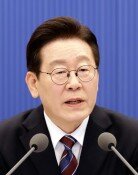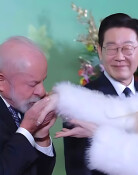Extra 10.5 million Sq. Meters of Land Needed for Relocation of USFK
Extra 10.5 million Sq. Meters of Land Needed for Relocation of USFK
Posted September. 23, 2003 23:09,
As the Yongsan garrison and the U.S. second infantry division are to be relocated, the Korean government will have to provide 10.2 million to 10.5 million sq. meters of land to the U.S. Forces in Korea.
During the National Assembly`s National Defense Committee`s inspection session held at the Ministry of Defense on September 23, defense minister Cho Young-kil said, "For the relocation of the USFK, Korea and the U.S. almost agreed that Korea would provide 10.2 million to 10.5 million sq. meters of land, in addition to the land of the existing U.S. bases in Osan-si and Pyeongtaek-si, Gyeonggi. He also said that it would be finally confirmed at the US-ROK Security Consultative Meeting (SCM) scheduled for next month.
Therefore, the Ministry of Defense set aside 250 billion won for the purchase of land in the ministry`s next year budget. However, the Ministry explained that it is too early to disclose how much it will cost to purchase extra land for US military bases.
The defense minister said that if the national sends around 3,000 troops to Iraq, it would cost approximately 200 billion won every year.
However, he replied that it was not an exact figure because extra costs, such as wages and equipment cost, were not added, when Millennium Democratic Party Rep. Lee Man-sup asked about the expected spending.
He added that Cha Young-koo, deputy minister of defense for policy, Seo Joo-seok, the National Security Council`s strategic planning bureau chief, and Wi Seong-rak, the North American bureau chief of the Ministry of Foreign Affairs and Trade will visit Washington for information gathering September 24-28.
Meanwhile, during a session for inspection of the Korean Broadcasting Commission and the Foundation for Broadcast Culture, the most influential shareholder of MBC at Broadcasting Center in Mokdong, Seoul, the National Assembly`s Culture and Tourism Committee members harshly blamed public broadcasting networks for their biased reports.
"Public broadcasting networks, including KBS and MBC, are focusing on `mating with the incumbent government,` jumping on the bandwagon of the Roh Moo-hyun government`s media bashing," said Rep. Ko Heung-kil of the Grand National Party (GNP). Rep. Kim Il-yun of the GNP said that there is a showdown between broadcasting networks supporting those with power and newspapers that keep in check those with power in Korean media and that minutes of the MBC viewers` association show some members are fanning the new government`s war on newspaper companies.







